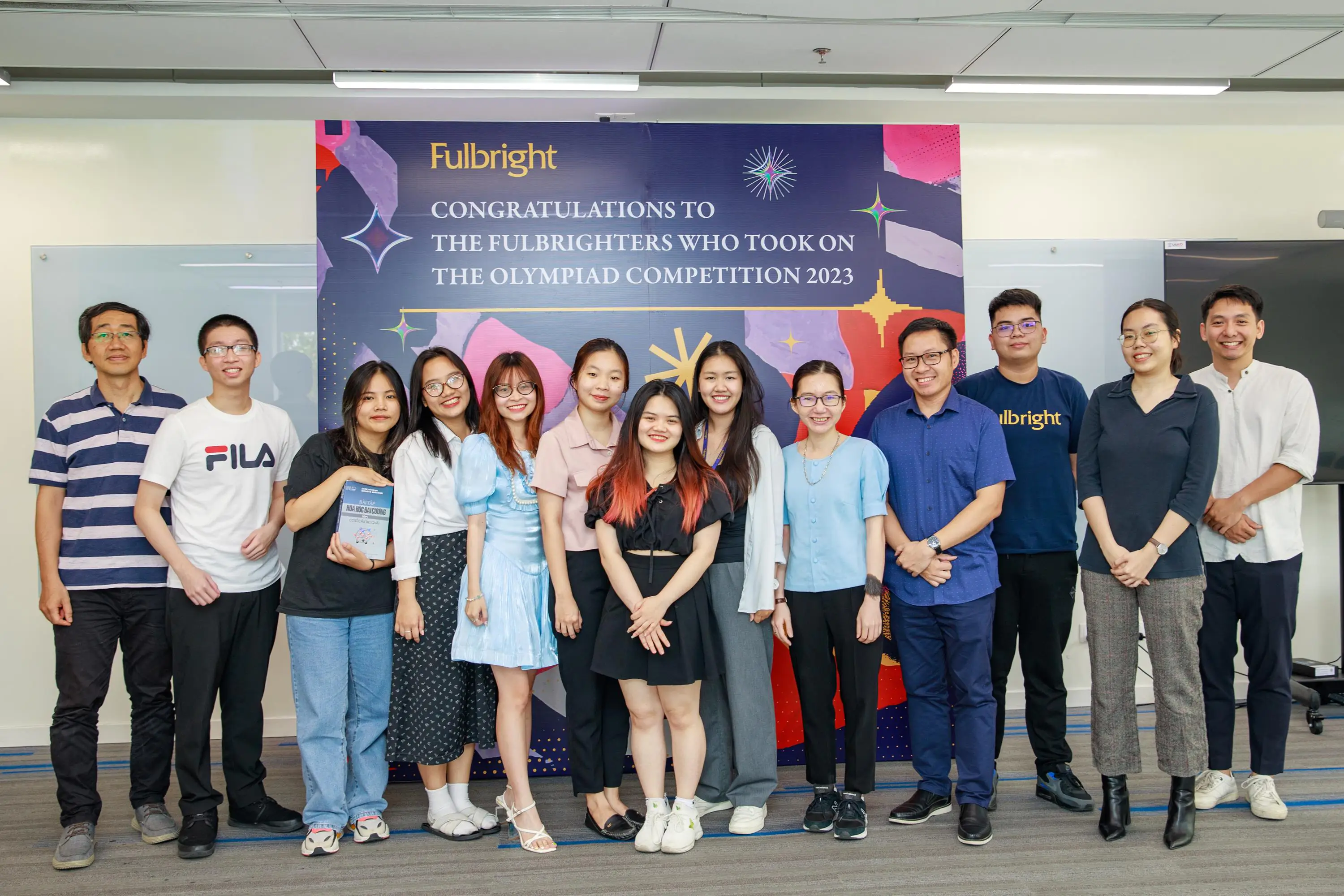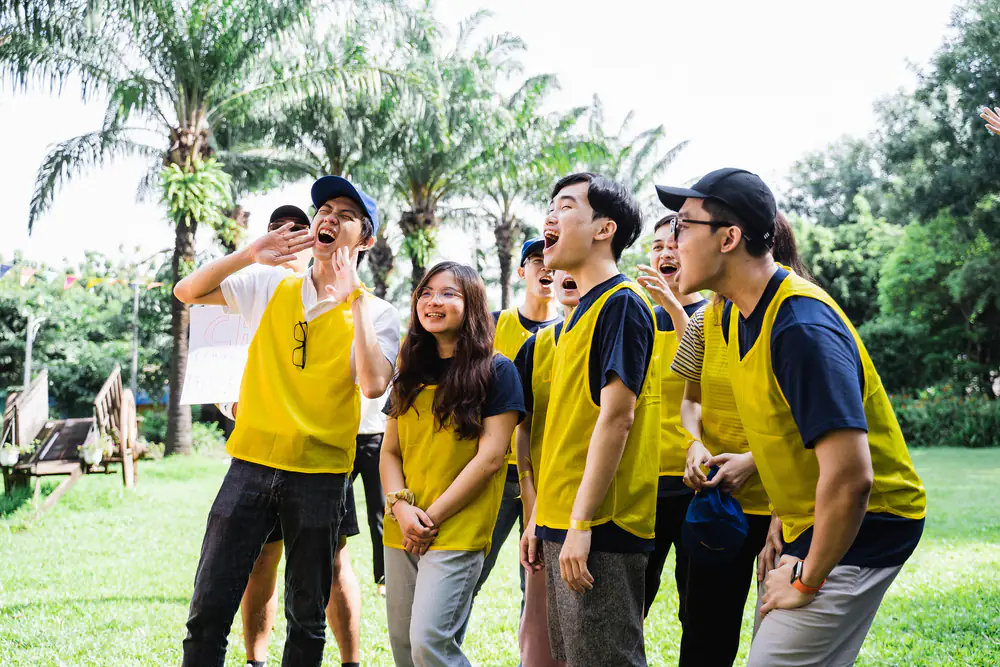The Integrated Sciences major is a single, comprehensive program comprising a variety of fields, including Biology, Chemistry, and Environmental Science. Today’s most urgent scientific problems – from climate change to public health – require an integrated approach. Introducing multiple pathways in the natural science and emphasizing real-world experience, the Integrated Sciences major prepares students for careers as responsible and innovative scientific leaders and to seek interconnected solutions informed by several scientific disciplines. Students in the Integrated Sciences major will practice interdisciplinary and research-based approaches to scientific discovery, while also pursuing a specific concentration within the natural sciences: (1) Environmental Science and Sustainability, or (2) Biology and Health Science. The Integrated Sciences major provides a strong foundation for a career in industry as well as future graduate study.
Integrated Sciences
Integrated Sciences at Fulbright
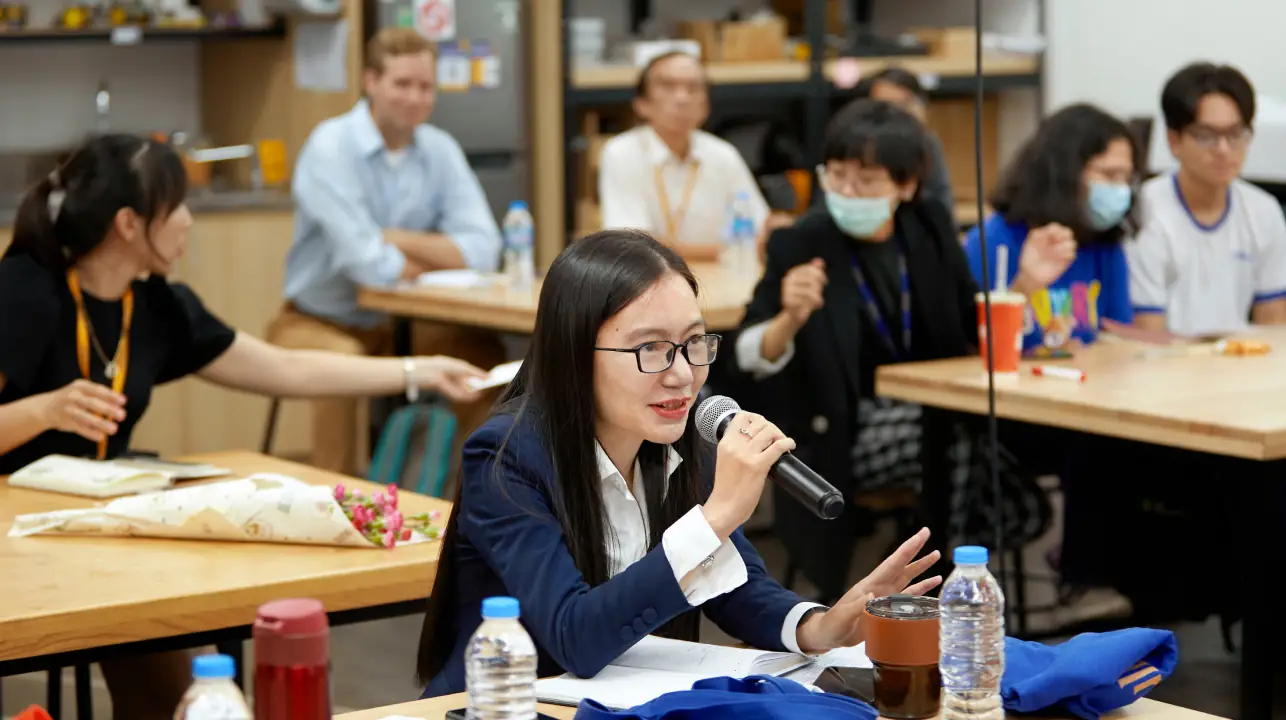
Welcome to the Integrated Sciences Major at Fulbright!
Integrated Sciences is a single major combining different disciplines in the natural sciences into a cohesive program. We hope to make the most out of the shared principles and interconnected foundation among the sciences, while also delving into certain disciplines for more advanced learning and research. Learning takes an interdisciplinary, project-based approach which combines various methods such as computational studies, laboratory experiments, and fieldwork. With our dedicated and evolving team, and close working relationships between students, faculty, and staff, we aim to develop Integrated Sciences to nurture capable, independent science graduates. Placed within the liberal arts environment of FUV, Integrated Sciences major equips students with the broad mindsets and the strong skills to bring science to life, have fulfilling careers, and contribute to the betterment of society.
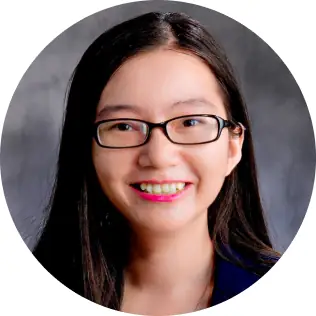
For more information about the Integrated Sciences major, please contact our Major coordinator at trang.nguyen@fulbright.edu.vn
Academic spotlight
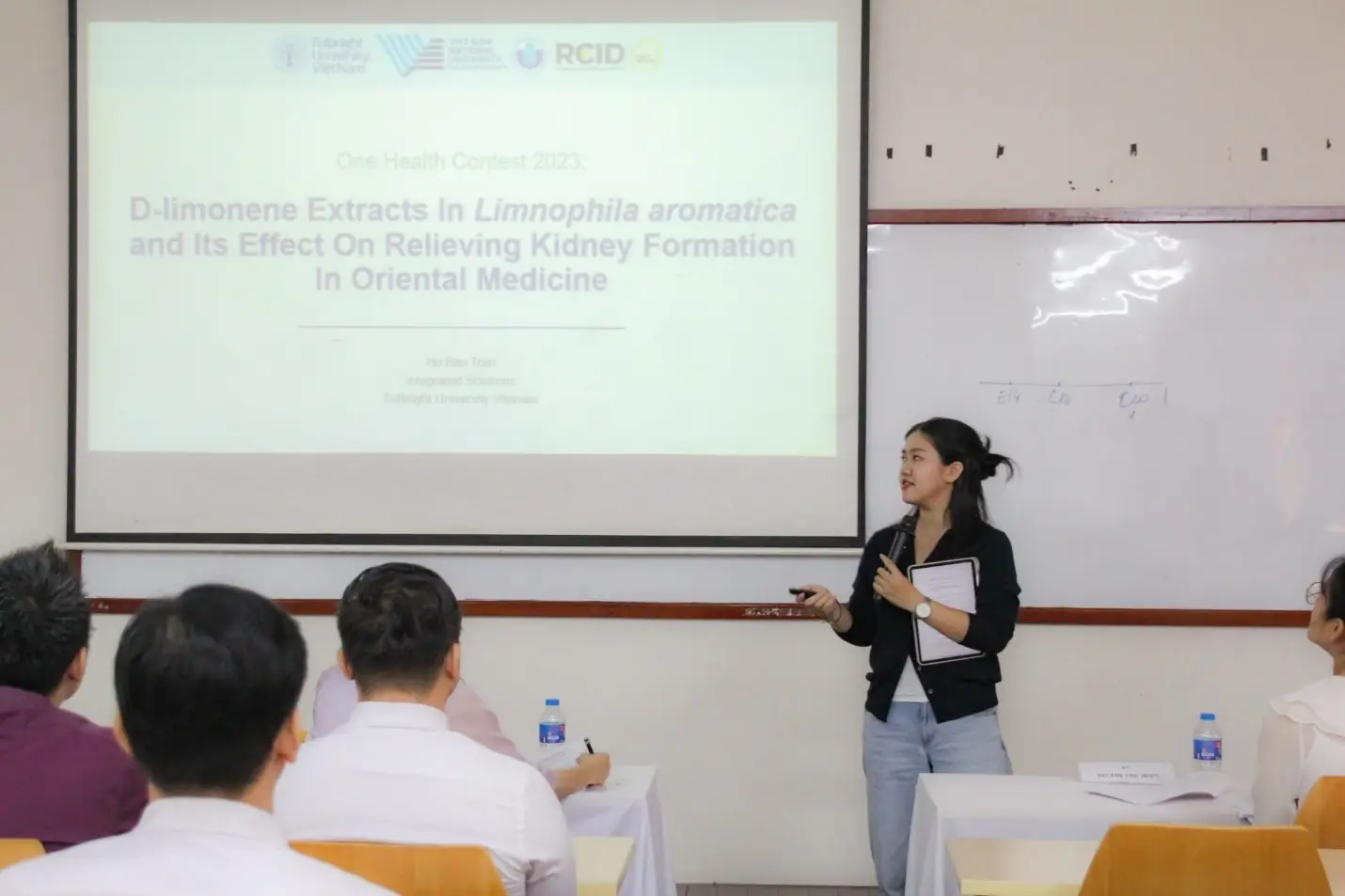
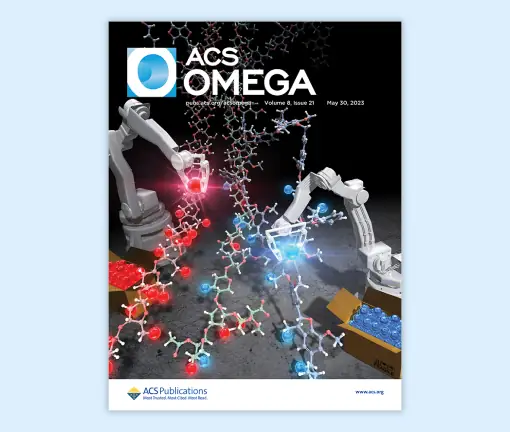
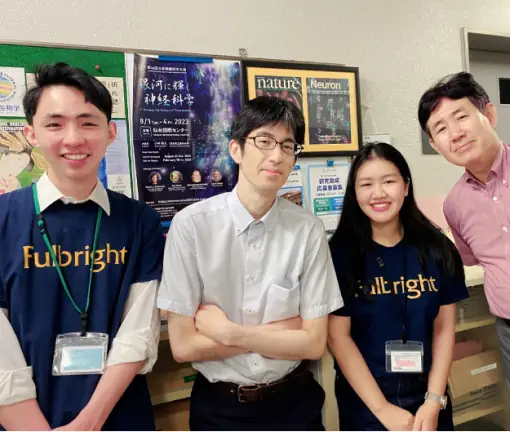
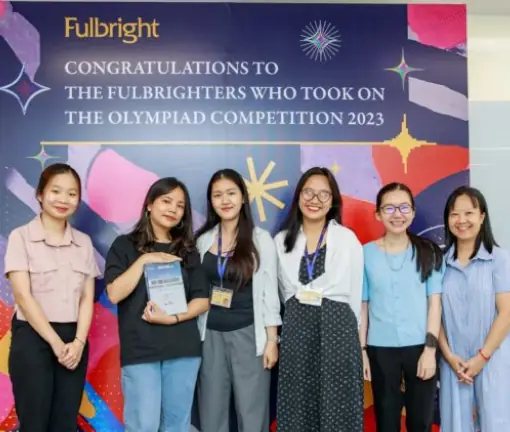
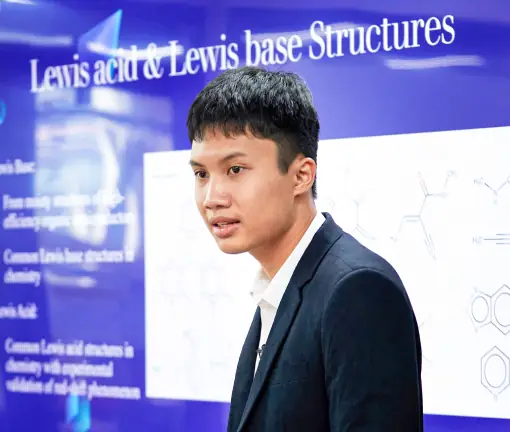
Degree Requirements
A Bachelor of Science in Integrated Sciences is awarded following the successful completion of:
General education:
- 5 Core courses (20 credits) and 8 Exploratory courses (32 credits), of which up to two Exploratory courses (8 credits) can be counted towards the major.
- Experiential Learning (4 – 12 credits).
Regular Major Requirements:
- 2 Required foundation courses: General Chemistry, and Introductory Biology (8 credits).
- 1 Required seminar course: Integrated Sciences Advanced Seminar (4 credits).
- 2 Math and Computer Science courses (8 credits).
- 5 Applied Integrated Sciences courses (20 credits) including at least three 300-level courses.
- Capstone I and Capstone II (8 credits) for Honors program OR
- 2 applied Integrated Sciences courses (8 credits), including at least one 300-level course.
- Electives courses (16 – 24 credits).
Concentrations:
Integrated Sciences major consists of 2 main concentrations:
- Environmental Science and Sustainability
- Biology and Health Science
These concentrations share the same degree requirements as outlined, only applied courses are different. Certain applied courses fit both concentrations.
Sample Student Journey:
- Core Courses
- Exploratory Courses
- Core Courses
- Exploratory Courses
- Introductory Biology
- General Chemistry
- Introductory Statistics
- Introductory Programing
- IS Advanced Seminars
- Applied IS Courses
- Elective Courses
- Experiential Learning
- Applied IS Courses
- Elective Courses
- Capstone I
- Capstone II
Minor Requirements
A total of six courses are required, with some flexibility to allow students to design a minor that best supports their major or career goals. Students are required to take:
- General Chemistry (4 credits)
- Introductory Biology (4 credits)
- Introductory Statistics OR Introductory Programming (4 credits)
- 3 Applied IS courses (12 credits), with at least two 300-level courses.
Requirements for Declaring the Integrated Sciences Major and Minor
To declare Major or Minor in Integrated Sciences, students need to complete:
- All Core and Exploratory Courses
- At least one of the two required foundational IS courses (General Chemistry or Introductory Biology).
Graduation with Honors Requirements
- Students must complete Capstone I and Capstone II
- The Capstone must be graded as Honors pass
Sample course list
Required foundation IS courses: These courses provide the fundamental knowledge of Chemistry, Biology, and certain topics of Physics. They serve as foundation for more advanced courses in Integrated Sciences major. There are 2 required 100-level IS courses:
- General Chemistry
- Introductory Biology
Statistics and Computing courses: Mathematical and computational foundations are integral in learning and doing sciences in this era. Therefore, Integrated Sciences students are required to complete one course in Statistics and one course in Programming. Any 100-level and 200-level course related to Statistics and Programming can be taken to fulfill this requirement.
Sample courses for Introductory Statistics requirement:
- Introduction to Data Analysis
- Probability and Statistics
Sample courses for Introductory Programming requirement:
- Computer Science I: Introduction to Programming
- Computer Science 2: Data Structures
- Algorithm Design and Analysis
Applied IS courses: These courses form the core of the IS major. They develop the knowledge and skills relevant to the two concentrations in increasing levels of depth: foundational (100-level), intermediate (200-level) and advanced (300-level). If students do Capstone, they will need 5 applied courses, including at least three 300-level courses. If students do not do Capstone, they will need 7 applied courses, including at least four 300-level courses. Note that 3 required courses (General Chemistry, Introductory Biology, Integrated Sciences Advanced Seminars) do NOT count toward this requirement.
| Concentrate | Environmental Science and Sustainability | Biology and Health Science |
|---|---|---|
| 100-level |
|
|
| 200-level |
|
|
| 300-level |
|
|
Note: certain courses can be applied to both concentrations
- Research seminar: The course “Integrated Sciences Advanced Seminars” is a requirement of IS major. It provides an advanced treatment of Integrated Science through lectures, seminars, and peer learning, with talks from not only FUV faculty but also invited speakers. Students learn and practice skills such as literature review, writing proposal, and presentation, which are essential to scientists and helpful in preparation for the Capstone.
- Capstone: while optional, doing Capstone is highly recommended in IS major. This takes the form of a year-long research project in the last year of study. It is separated into Capstone I & II (4 credits each). Students need to apply and get faculty approval to do Capstone. The outcome is usually a scientific research report accompanied by an oral defense.
Foundation IS Courses (2 required)
Foundation IS Courses:
- General Chemistry
- Introductory Biology
Math and Computing Courses (one each for total of 2 required)
Math and Computing Courses:
Sample courses for Introductory Statistics requirement:
- Introduction to Data Analysis
- Probability and Statistics
Sample courses for Introductory Programming requirement:
- Computer Science I: Introduction to Programming
- Computer Science 2: Data Structures
- Algorithm Design and Analysis
IS Advanced Seminar (1 required)
Capstone I & Capstone II (2 required)**
Capstone:
In order to graduate with Honors, students must:
- Do a Capstone
- The Capstone must pass at Honor level
Applied Courses (7 required)*
Applied Courses:
- (at least four courses at 300-level)*
- (at least three courses at 300-level)**
Environmental Science and Sustainability:
- Environmental Sciences (100-level)
- Sustainable Development: Science and Industries (100-level)
- Energy in Daily Life (100-level)
- Materials that shape our world (200-level)
- Organismal Diversity and Evolution (200-level)
- Climate and water (200-level)
- Environmental Chemistry (200-level)
- Advanced Analytical Techniques (300-level)
- Environmental Microbiology (300-level)
- Ecosystem modeling (300-level)
- Materials for the Green Transition (300-level)
Biology and Health Science:
- Research method and statistics (100-level)
- DNA (100-level)
- Cell Biology (200-level)
- Introduction to Bioinformatics (200-level)
- Biology of Infectious Diseases (200-level)
- Organic Chemistry (200-level)
- Human Physiology (300-level)
- Medical Biochemistry (300-level)
- Human Genetics and Genomics (300-level)
- Immunology (300-level)
Applied Courses (5 required)**
*Regular major requirements
**Major with Honor requirements
Meet our faculty
Featured faculty
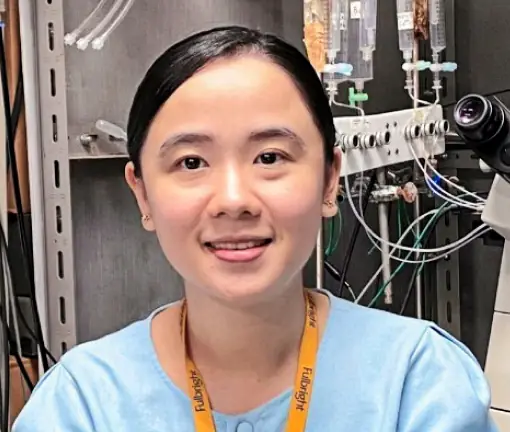
Meet our Fulbrighters
Featured student
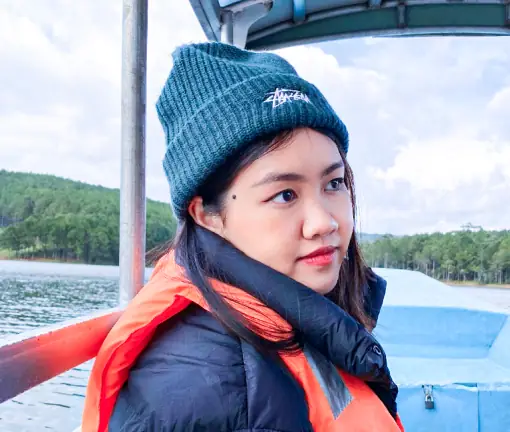
- Bui Tran Van Anh
- Vũ Ngọc Hân
- Pham Nguyen Hoang Le
- Hồ Bảo Trân
- Nguyễn Duy Hiếu
- Lê Trần Ngọc Khanh
- Nguyễn Hà Linh Tú
- Lê Thảo Tường Vy
- Nguyễn Đình Thạch Lam
- Nguyễn Vân Trang

Meet our Alumni
Come and learn how Fulbright has impacted the lives of our current students and graduates.
Featured alumni
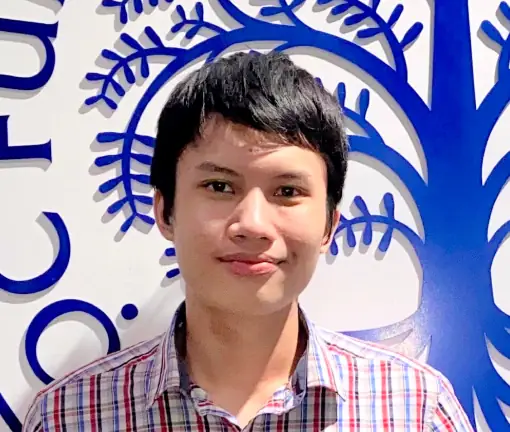
Selected Faculty Publications
Phan, Hung, Thomas J. Kelly, Andriy Zhugayevych, Guillermo C. Bazan, Thuc-Quyen Nguyen, Emily A. Jarvis, and Sergei Tretiak. “Tuning Optical Properties of Conjugated Molecules by Lewis Acids: Insights from Electronic Structure Modeling.” The Journal of Physical Chemistry Letters 10, no. 16 (2019): 4632–38. https://doi.org/10.1021/acs.jpclett.9b01572.
Trang T. H. Nguyen, Emily J. Zakem, Ali Ebrahimi, Julia Schwartzman, Tolga Caglar, Kapil Amarnath, Uria Alcolombri, Francois J. Peaudecerf, Terence Hwa, Roman Stocker, Otto X. Cordero, Naomi M. Levine (2022). Microbes contribute to setting the ocean carbon flux by altering the fate of sinking particulates, Nature Communications 13, 1657 (2022). https://doi.org/10.1038/s41467-022-29297-2
Capstone projects
Events and News







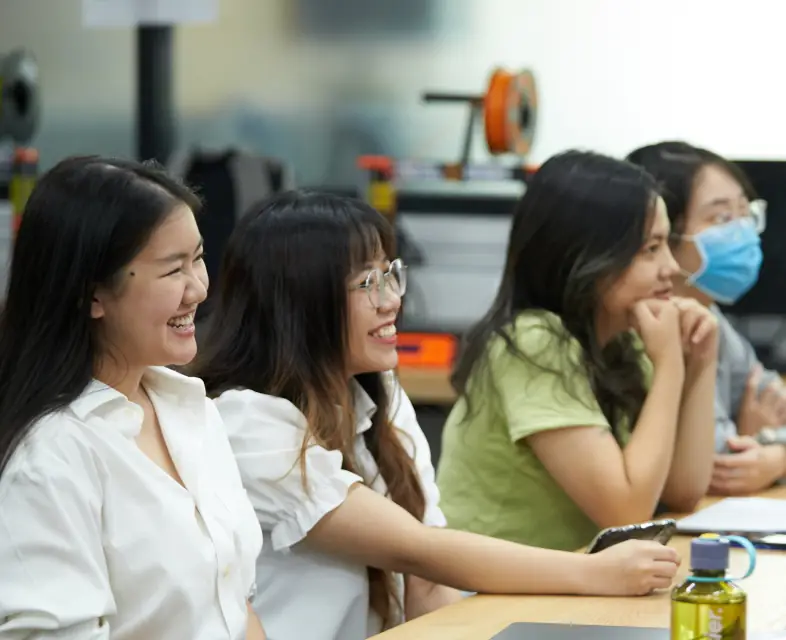





 Foundation IS Courses (2 required)
Foundation IS Courses (2 required)